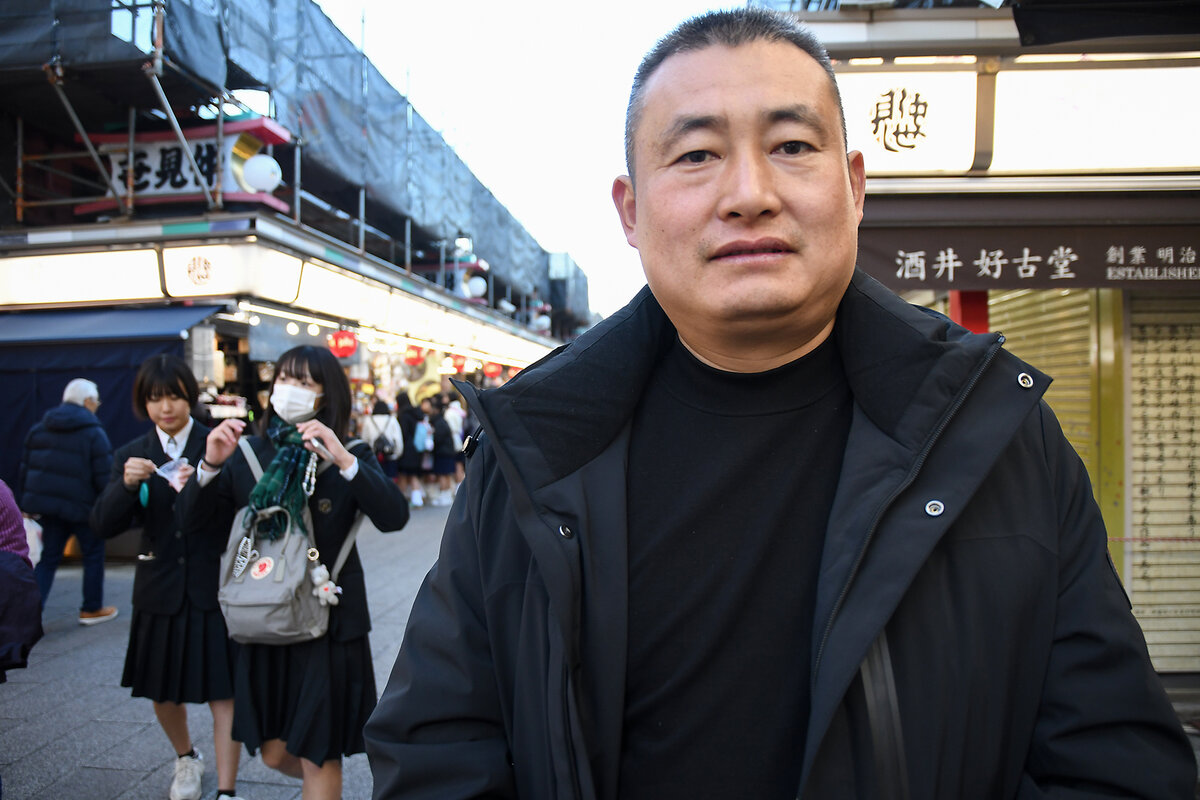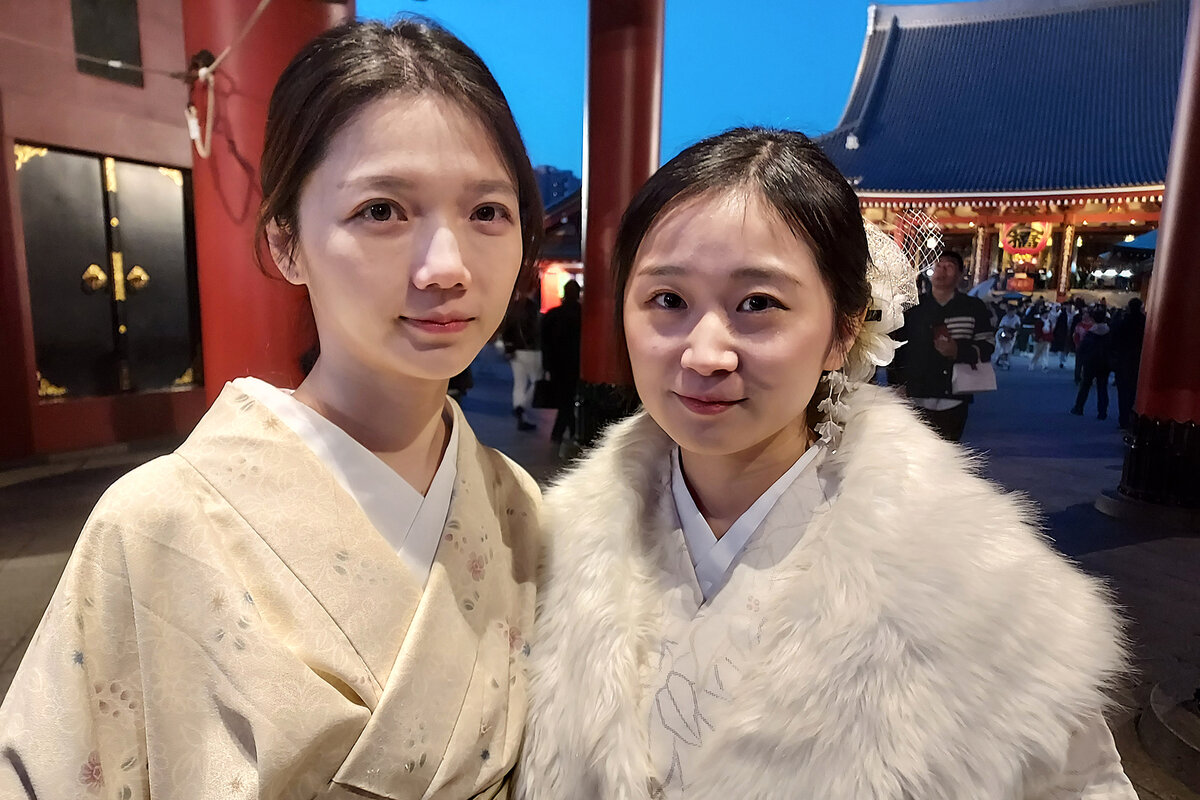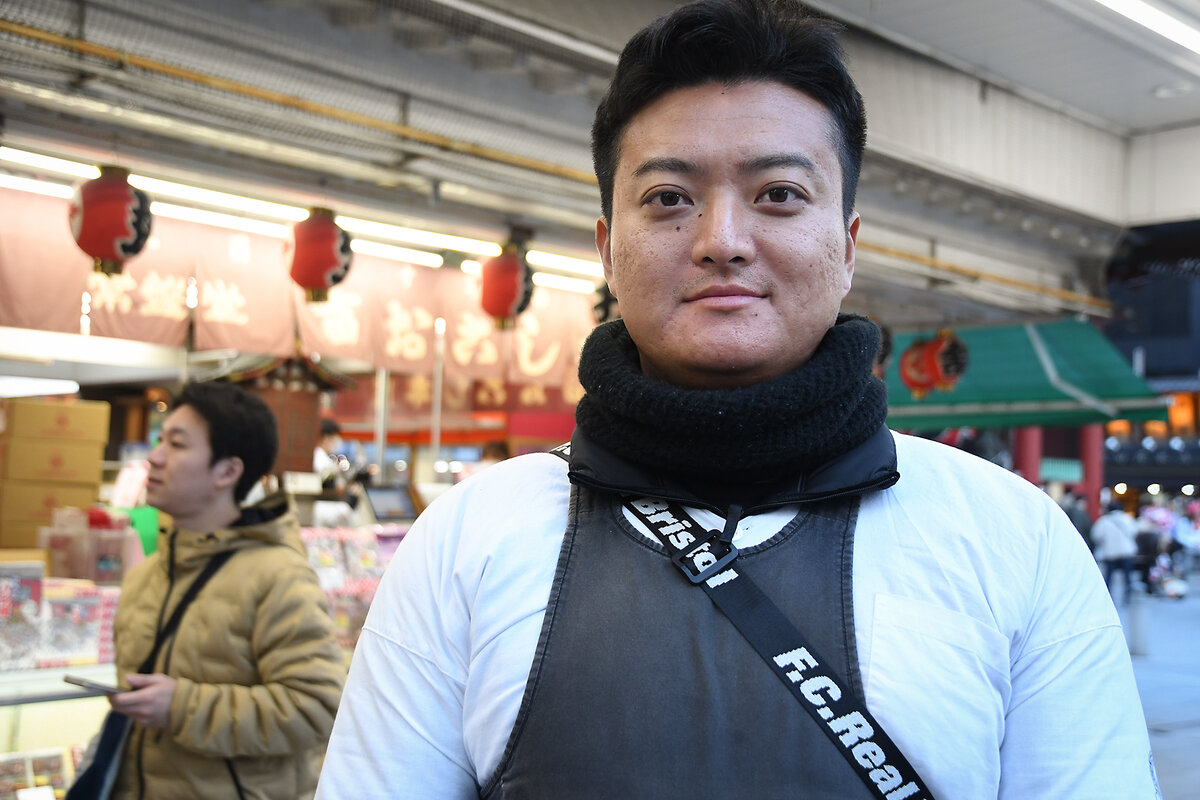China-Japan distrust has been tough to shake. Tourism might be the best chance.
Loading...
| Tokyo
Kazuro Inagaki is a bit of an anomaly in the world of Tokyo rickshaw pullers.
Until recently, he didn’t advertise the fact that he had spent four years living in Beijing and spoke fluent Mandarin. But now, as he hustles for business outside the Sensō-ji Buddhist temple on a chilly afternoon, it has become his strongest asset.
The ranks of mainland Chinese visitors coming to Japan nearly tripled last year to 7 million, chipping away at decades of antagonism between the countries and helping make 2024 a banner year for tourism. Tourism spending is now Japan’s second-biggest export category after cars, and has surpassed electronic components and steel.
Why We Wrote This
When is a vacation more than a vacation? When it counters everything you’ve been taught to hate about another country. The surge of Chinese travelers into Japan may be creating much-needed ambassadors.
A sharp decline in the value of Japanese currency has contributed to the boom, yet Chinese travelers say they are drawn to the island for reasons that go beyond the favorable exchange rate. They express an open-mindedness and, by the end of their travels, an affinity for Japan that is often missing amid the historic animosity and ongoing territorial disputes between the two countries.
“It’s very clean and has a good environment,” says Wang Boling, as he strolls past shops selling Japanese fans, paintings, and wooden sandals. On his first trip to Japan, Mr. Wang, from China’s eastern Shandong Province, is on a tour with 24 co-workers from a battery factory.
“I might well come back,” he says.
Such views are unusual, given how negative Chinese public opinion is about Japan, and vice versa. Indeed, generations of Chinese have viewed Japan as an enemy, with many elders still harboring resentment over atrocities committed by Japanese soldiers during World War II. A December poll found that nearly 90% of respondents in both China and Japan have a “poor or relatively poor” impression of the other country.
The results represent “the worst deterioration in public sentiment seen in the twenty years of this poll,” wrote Yasushi Kudo, president of The Genron NPO, a Tokyo-based organization that conducted the poll with the Beijing-based China International Publishing Group. In an online statement, Mr. Kudo called the findings “a warning” to Beijing and Tokyo.
Yet the poll also found one bright spot. Chinese citizens who had traveled to Japan had far more positive views than those who had not. Among those who had visited, 55% of Chinese polled said they had a “good” or “relatively good” impression of Japan, compared with less than 3% of those who had never visited.
Ariel Wang, a graduate student from Shanghai on her third visit to Japan, underscores the importance of this familiarity.
“I have a good feeling towards Japanese people. They are very hospitable,” she says, as she models a Japanese kimono together with her classmate, Vita Wu. “They help us find our way and even lead us there – they are really polite.”
Ms. Wu nods. Visiting Japan for the first time, she has found herself enamored.
“I like the art and culture in Japan,” says Ms. Wu, who is teaching herself Japanese greetings. “We like Japanese TV shows and romantic movies.”
But as they snap photos of each other in their silken kimonos, the students are acutely aware that their fondness for Japan is rare among Chinese. They won’t be posting the kimono images online in China, they say, lest they spark a public backlash.
Meanwhile, Mr. Inagaki, the rickshaw puller, is leveraging his Mandarin and making connections on Chinese apps. As a graduate of the Beijing Language and Culture University, he enjoyed living in China and now regularly interprets for Chinese visitors and businesspeople. While he says some Japanese are resentful about the flood of Chinese tourists, as well as higher hotel prices, many see advantages.
“It’s good for us tour guides," he says.









